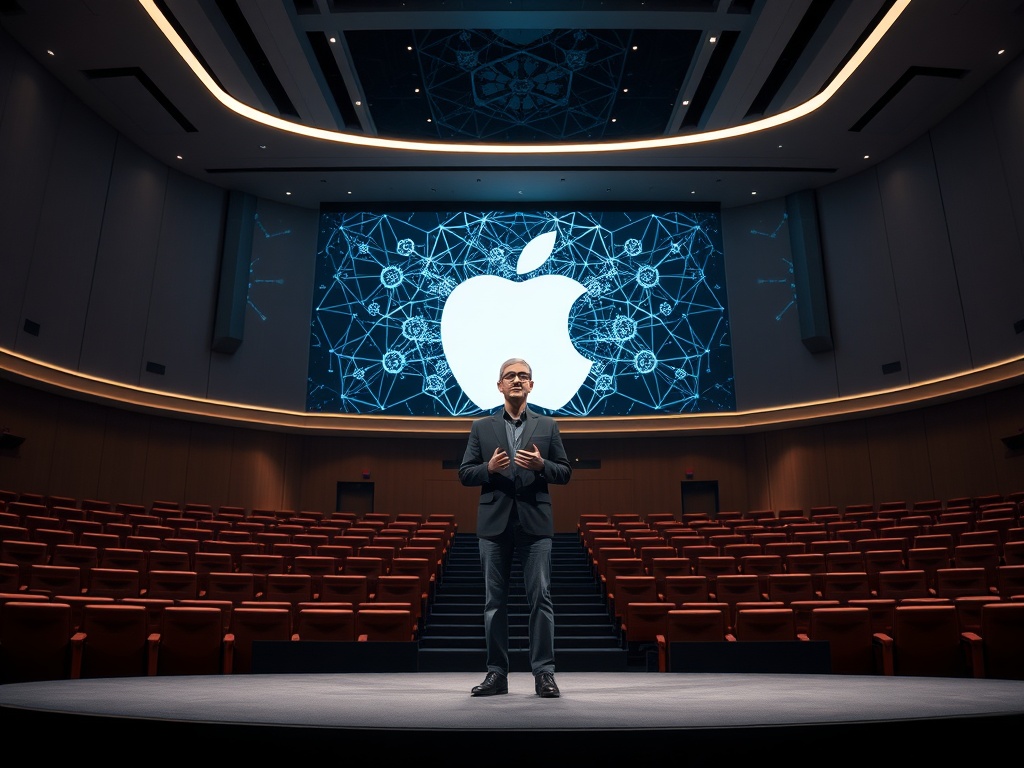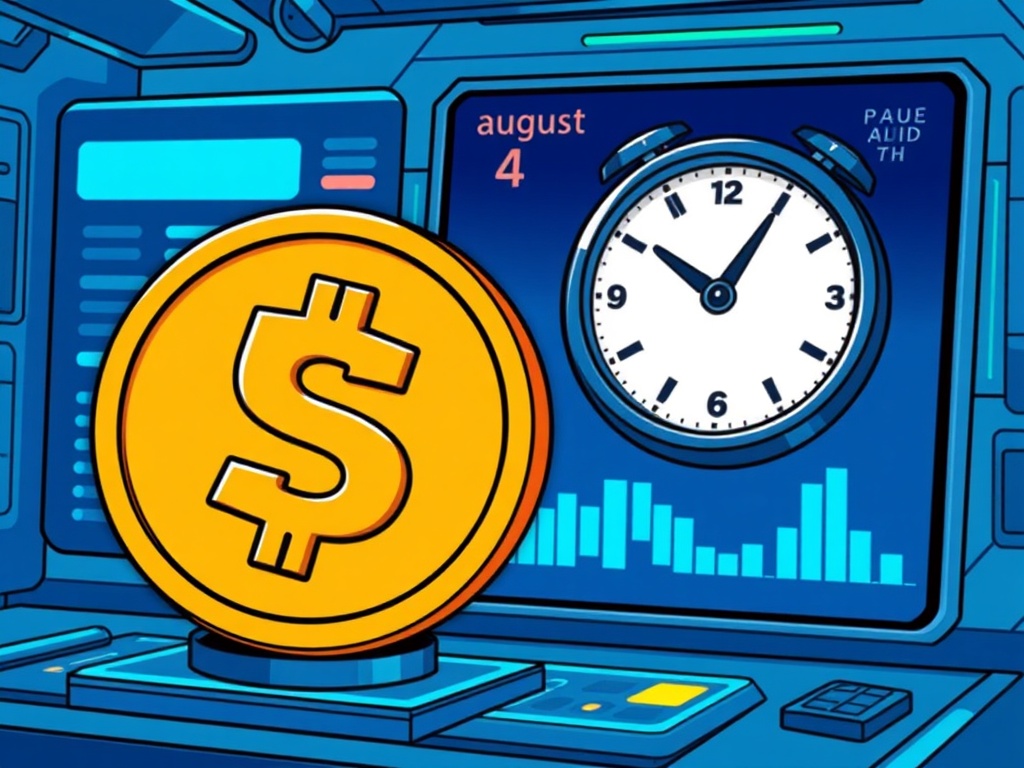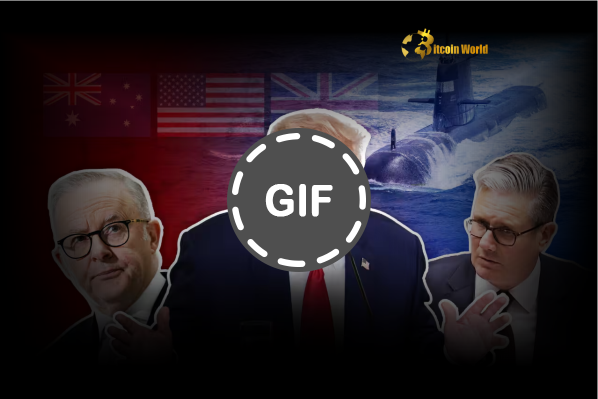BitcoinWorld

Mistral AI: Unleashing European Innovation as a Formidable OpenAI Competitor
In the rapidly evolving world of artificial intelligence, where innovation often dictates market shifts, Mistral AI has emerged as a significant player, capturing attention far beyond its French origins. For those in the cryptocurrency and blockchain space, the rise of powerful, independent AI entities like Mistral AI signals potential shifts in infrastructure, decentralized applications, and even the future of automated trading and data analysis. This Parisian powerhouse is not just another startup; it’s being hailed as a formidable OpenAI competitor, challenging the established giants and promising a new era of AI development.
What is Mistral AI? A European Powerhouse
Founded in 2023, Mistral AI quickly positioned itself as one of France’s most promising tech startups, aiming to “put frontier AI in the hands of everyone.” While not a direct critique of OpenAI, this mission underscores Mistral AI’s commitment to openness in AI development. The company’s chat assistant, Le Chat, serves as a direct alternative to ChatGPT and has seen remarkable success, especially in its home country. Following its mobile release, Le Chat garnered 1 million downloads in just two weeks, even topping France’s iOS App Store for free downloads. French President Emmanuel Macron himself publicly encouraged its adoption, highlighting its significance for European tech sovereignty.
In July 2025, Le Chat received substantial updates, enhancing its capabilities to rival full-stack AI chatbots. These improvements include a new “deep research” mode, native multilingual reasoning, and advanced image editing. Additionally, the introduction of “Projects” allows users to organize chats, documents, and ideas into focused workspaces, streamlining workflow and enhancing user experience.
Exploring Mistral AI’s Diverse AI Models
Mistral AI’s ambition is clearly reflected in its expansive suite of AI models, designed for various applications and user needs. From foundational language models to specialized coding assistants, Mistral AI’s offerings showcase a commitment to versatility and performance. The company has rapidly iterated and expanded its model lineup since its inception, demonstrating agile development and a keen understanding of market demands.
| Model Name | Description & Key Features | Release Date / Status |
|---|---|---|
| Le Chat | AI assistant, alternative to ChatGPT, available on iOS/Android, deep research mode, multilingual reasoning, image editing, Projects feature. | Mobile release Feb 2025, updated July 2025 |
| Mistral Large 2 | Primary large language model, successor to Mistral Large. | Replaced Mistral Large |
| Pixtral Large | New addition to the Pixtral family of multimodal models. | Unveiled 2024 |
| Magistral | First family of reasoning models. | Launched June 2025 |
| Mistral Medium 3 | Efficiency without compromising performance, best for coding and STEM tasks. | Released May 2025 |
| Voxtral | First open-source AI audio model. | Released July 2025 |
| Devstral | AI model designed for coding, Apache 2.0 license (commercial use allowed), powers Mistral Code. | Introduced July 2025 (Devstral Medium/Small upgrade) |
| Codestral | Earlier generative AI model for code (commercial use banned). | Earlier release |
| Les Ministraux | Family of models optimized for edge devices (e.g., phones). | Ongoing development |
| Mistral Saba | Focused on Arabic language. | Ongoing development |
| Mistral OCR | Optical Character Recognition (OCR) API to convert PDFs to text. | March 2025 |
| Mistral Agents API | Empowers enterprises to use AI in practical, impactful ways. | May 2025 |
| Mistral Code | Vibe coding client, competes with incumbents like Windsurf, Cursor, GitHub Copilot. | June 2025 |
Who are the Visionaries Behind Mistral AI?
The strength of Mistral AI lies significantly in its founding team. The three co-founders share a robust background in AI research, having honed their skills at major U.S. tech companies with significant European operations. CEO Arthur Mensch previously worked at Google’s DeepMind, while CTO Timothée Lacroix and Chief Scientist Officer Guillaume Lample are former Meta staffers. This collective experience from leading AI labs provides Mistral AI with deep expertise and a competitive edge in developing advanced AI systems. Additionally, co-founding advisers include notable figures such as Jean-Charles Samuelian-Werve and Charles Gorintin from health insurance startup Alan, as well as former digital minister Cédric O, whose involvement has sparked ongoing discussions due to his prior governmental role.
Is Mistral AI Truly Open Source? Embracing Generative AI’s Potential
A core tenet of Mistral AI’s philosophy revolves around openness, particularly concerning its generative AI models. However, the company operates with a nuanced approach to open source. Not all of its premier models are fully open, meaning their weights are not available for commercial purposes. Yet, Mistral AI differentiates itself by providing weight access for its free models under the Apache 2.0 license, allowing for broad commercial use without restriction. A notable example is Mistral NeMo, a research model developed in collaboration with Nvidia, which the startup open-sourced in July 2024. This hybrid strategy allows Mistral AI to balance the need for proprietary development of its cutting-edge models with a commitment to contributing to the broader open-source AI community.
How Does Mistral AI Generate Revenue?
While many of Mistral AI’s initial offerings and certain models are free or have free tiers, the company has a clear monetization strategy. Its primary consumer-facing product, Le Chat, introduced a Pro plan in February 2025, priced at $14.99 a month, targeting power users and professionals. On the business-to-business (B2B) front, Mistral AI monetizes its premier models through APIs with usage-based pricing, offering flexibility for enterprises. Companies can also license these advanced models for internal deployment. Furthermore, a significant portion of Mistral AI’s revenue is likely derived from its strategic partnerships, many of which were highlighted during the Paris AI Summit. Despite its rapid growth and high valuation, Mistral AI’s revenue is reportedly still in the eight-digit range, indicating a focus on scaling and market penetration before maximizing profit.
Fueling AI Innovation: Mistral AI’s Strategic Partnerships
Mistral AI’s rapid ascent and impressive valuation are underpinned by a series of strategic partnerships that have significantly boosted its reach and capabilities, driving widespread AI innovation. These collaborations extend across various sectors, demonstrating the company’s versatility and ambition:
- Microsoft: In 2024, Mistral AI secured a deal with Microsoft, including a strategic partnership for distributing its AI models through Microsoft’s Azure platform and a €15 million investment. This alliance, while small enough to avoid a UK Competition and Markets Authority investigation, sparked debate within the EU regarding market concentration.
- Agence France-Presse (AFP): In January 2025, Mistral AI signed a deal with AFP, allowing Le Chat to query the news agency’s entire text archive dating back to 1983. This partnership enhances Le Chat’s knowledge base and demonstrates AI’s potential in media.
- Government & Industry: Mistral AI has forged strategic partnerships with France’s army and job agency, the government of Luxembourg, shipping giant CMA, German defense tech startup Helsing, IBM, Orange, and Stellantis. These collaborations highlight Mistral AI’s impact across diverse sectors, from national security to logistics and automotive.
- AI Campus & Mistral Compute: In May 2025, Mistral AI announced its participation in creating an AI Campus in the Paris region, a joint venture with UAE-investment firm MGX, NVIDIA, and France’s state-owned investment bank Bpifrance. Furthermore, in June 2025, it was announced that Mistral would launch Mistral Compute in 2026, a European platform dedicated to AI and powered by Nvidia processors. This initiative was lauded as “historic” by President Macron, underscoring its importance for European technological independence.
- AI for Citizens: In July 2025, the company unveiled “AI for Citizens,” a collaborative initiative aimed at helping states and public institutions strategically harness AI to transform public services, catalyze innovation, and ensure competitiveness for their populations.
The Funding Journey of Mistral AI
Mistral AI’s funding journey has been nothing short of meteoric, reflecting strong investor confidence in its potential to become a leading OpenAI competitor. As of February 2025, the company had raised approximately €1 billion (around $1.04 billion) in capital, including both equity and debt financing. This impressive sum was accumulated through several rapidly successive rounds:
- Seed Round (June 2023): Before even releasing its first models, Mistral AI secured a record-breaking $112 million seed round led by Lightspeed Venture Partners. This round, Europe’s largest ever seed investment, valued the one-month-old startup at $260 million. Notable investors included Bpifrance, Eric Schmidt, Exor Ventures, and Xavier Niel, among others.
- Series A (December 2023): Just six months later, Mistral AI closed a Series A round of €385 million (approximately $415 million), valuing the company at a reported $2 billion. This round was led by Andreessen Horowitz (a16z), with participation from existing investors like Lightspeed, and new backers including BNP Paribas and Salesforce.
- Series A Extension / Microsoft Investment (February 2024): Microsoft’s $16.3 million convertible investment, part of their strategic partnership, was presented as an extension of the Series A, implying an unchanged valuation at that point.
- Series B (June 2024): Mistral AI then raised a substantial €600 million (around $640 million) in a mix of equity and debt. This widely anticipated round was led by General Catalyst and catapulted the company’s valuation to an impressive $6 billion. Key investors included Cisco, IBM, Nvidia, and Samsung Venture Investment Corporation, further cementing its position in the global AI landscape.
Currently, Mistral AI is reportedly in discussions to raise an additional $1 billion in equity from investors, including Abu Dhabi’s MGX fund, alongside hundreds of millions of euros in debt, indicating continued investor appetite for its growth trajectory.
Navigating the Regulatory Landscape
The rapid advancement of AI has brought regulatory scrutiny, particularly in the European Union. Arthur Mensch, CEO of Mistral AI, has been an active voice in these discussions. In July 2025, he was among a group of European CEOs who signed an open letter urging Brussels to “stop the clock” for two years before key obligations of the EU Artificial Intelligence Act entered into force. This stance reflects a concern that overly stringent or premature regulation could stifle innovation and competitiveness for European AI companies. However, the European Commission has maintained its original timeline for the AI Act’s implementation, setting a challenging environment for AI developers in the region.
What Does the Future Hold for Mistral AI as an OpenAI Competitor?
Despite persistent acquisition rumors, notably involving Apple, CEO Arthur Mensch has firmly stated that Mistral AI is “not for sale.” Instead, an Initial Public Offering (IPO) is explicitly the company’s long-term plan. This strategy makes strategic sense given the significant capital raised to date; a large private sale might not provide the desired multiples for its investors, nor would it address the critical sovereignty concerns surrounding a European AI champion. The ultimate challenge for Mistral AI, as a serious OpenAI competitor, will be to significantly scale its revenue to levels that can truly justify its nearly $6 billion valuation. This will require continued innovation, aggressive market expansion, and successful monetization of its advanced models and services. The company’s journey is a compelling narrative of ambition, innovation, and the quest for technological independence in the global AI race.
Conclusion
In conclusion, Mistral AI stands at a pivotal juncture, not just as a promising European startup but as a serious contender in the global AI arena. Its blend of cutting-edge AI models, strategic partnerships, and a clear vision for openness positions it uniquely against the backdrop of centralized AI development. While the road ahead as an OpenAI competitor is fraught with challenges, including scaling revenue and navigating complex regulations, Mistral AI’s journey so far demonstrates remarkable resilience and ambition. Its commitment to fostering AI innovation and its strategic approach to generative AI could indeed reshape the future of artificial intelligence, making it a company to watch closely in the coming years.
To learn more about the latest AI market trends, explore our article on key developments shaping AI models and institutional adoption.
This post Mistral AI: Unleashing European Innovation as a Formidable OpenAI Competitor first appeared on BitcoinWorld and is written by Editorial Team





